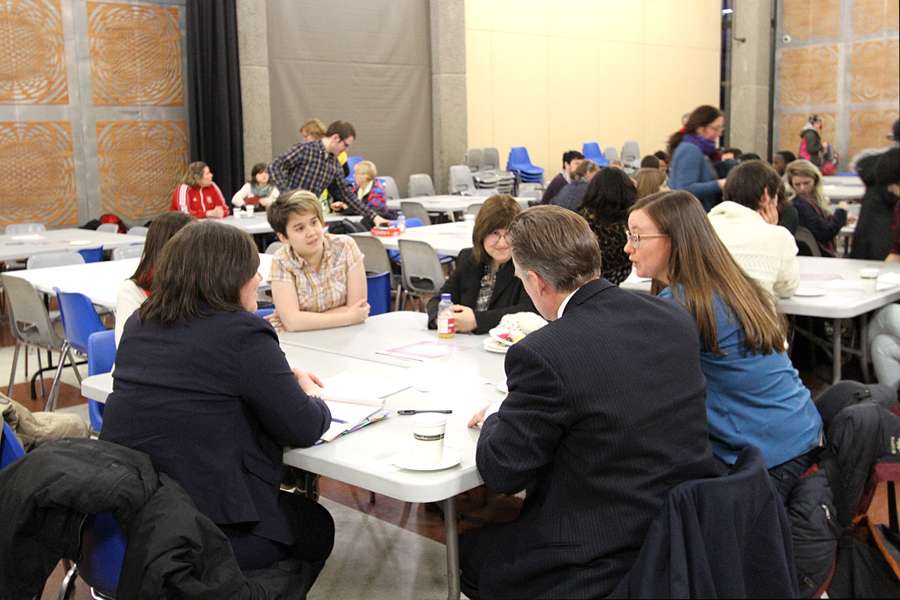Student groups proposed plans to introduce a new sexual assault policy at McGill’s Forum on Consent on Feb. 26.
Attended by students, faculty, staff, and other members of the McGill community, the forum included speakers from groups such as the Sexual Assault Centre of the McGill Students’ Society (SACOMSS), Queer McGill, and the Union for Gender Empowerment (UGE).
During a panel discussion, SACOMSS announced a plan to bring forward a clearly defined policy regarding sexual assault for university-wide implementation. The document was created in collaboration with Queer McGill, UGE, and other student groups.
“We will be putting forward a list of recommendations regarding a new administrative position […] as well demands for the creation for an official and clear university sexual assault policy,” SACOMSS Representative Kelly Schieder said. “We feel that this is long overdue at McGill.’’
McGill currently does not have a policy regarding sexual assault. Instead, measures dealing with sexual assault are located in the Student Code of Conduct.
Kai O’Doherty, one of the co-presenters of the policy and a representative of UGE, explained that the policy would include the hiring of a sexual assault coordinator who would be the main reference point for all matters regarding sexual assault at the university. Additionally, the policy would be tailored towards the needs of survivors of sexual assault.
While McGill is already in the process of hiring a coordinator for programming on the topic of sexual assault, O’Doherty said the policy aims to outline the position portfolio.
“[We need] someone who is well trained in matters ranging from sexual assault to anti-racism to anti-homophobia, but also […] someone who is trained in the immediate process of guiding a supporter through the process,” O’Doherty said. “[It should be] someone who would also be in charge of helping awareness campaigns on rape culture and victim blaming, and someone who is aware of the safety measure for survivors and the policy itself.”
The policy also outlines plans to introduce mandatory training in matters regarding sexual assault for all new professors, incoming students, and student groups that have been identified as high risk such as frosh groups. It would also encourage training among current students and professors.
According to Dean of Students André Costopoulos, the focus on creating a new policy is positive because it would bring greater visibility to the already existing, but disorganized, sexual assualt measures and unite the policies under one general banner.
“Almost everything that they proposed in their policy is already in place somewhere in the university, so let’s get them all together and let’s give better visibility and let’s get them known,” he said. “Once we’ve done that, we can see where the holes are and what we can do [to] fill them.”
Vice-President University Affairs of the Students’ Society of McGill University (SSMU) Joey Shea has been working in collaboration with the student groups to draft the new policy. She said the proposal requires endorsement by all student groups involved before it can be presented to SSMU Council on March 12.
After SSMU Council, the policy would have to go through a number of channels including Senate to become official university policy.
Shea, one of the forum’s hosts, said she was hopeful about the event’s impact on campus dialogue on consent.
“The point of the forum was to start a conversation about sexual assault on campus,” Shea said. “To start a conversation about what is consent […] what is rape culture and to define that is really important and for [This was] a launching point for McGill doing its due diligence in terms of where we are with this issue.’’







